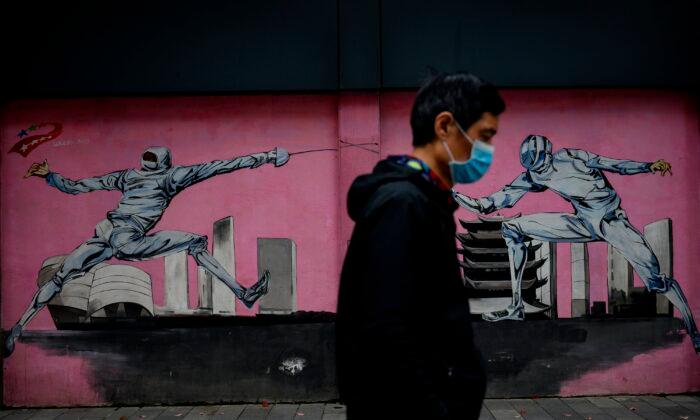A Republican congressman introduced a bill on April 3 that would make it easier for Americans to bring legal action against the Chinese regime for its role in causing the global pandemic.
The Chinese regime currently enjoys protection from lawsuits filed in U.S. courts under the doctrine of sovereign immunity, a legal rule that insulates countries from being sued in other countries’ courts. There are, however, exceptions to this rule found in the Foreign Sovereign Immunities Act (FSIA).
The move comes amid growing calls by U.S. lawmakers to hold the Chinese regime accountable for its initial coverup of the CCP virus outbreak in Wuhan, which has since morphed into a global pandemic claiming tens of thousands of lives and devastating the world economy.
The legislation would pave the way for the U.S. Department of Justice to investigate the source of the virus, and file claims against the Chinese regime in the United States, the statement said.
“The purpose of this legislation is to help us uncover just what China is responsible for,” Gooden told The Epoch Times in an email.
The origin of the virus is still unknown. While Chinese authorities initially suggested that a live animal market in Wuhan was the source of the outbreak, officials have since steered away from this narrative. The first documented patient, a bedridden man in his 70s in Wuhan who showed symptoms on Dec. 1, did not have any contact with the market.
Meanwhile, Beijing has launched a global disinformation campaign to push the unfounded theory that the virus originated from outside China, in a bid to deflect blame over its mismanagement of the outbreak. One Chinese official has claimed, without providing evidence, that the virus was introduced to Wuhan by U.S. Army personnel.
US Lawsuits
Despite the potential barrier of sovereign immunity, several lawsuits were recently launched in domestic courts against the Chinese regime, seeking to hold it liable for the damage the CCP virus has caused to Americans.One of them is a class action filed by Florida law firm The Berman Law Group in March. The firm, in a joint statement issued on April 3 with Lucas Compton, a Washington-based lobbying firm hired to do PR for the lawsuit, welcomed Gooden’s bill, saying it would “provide additional firepower to our legal position.”
But the firm maintained that the “lawsuit is not only enforceable in its current state, but addresses key legal components that are exceptions to the Foreign Sovereignty Immunities Act’s (FSIA) jurisdiction.”
The complaint says the action falls under two exceptions to FSIA: the “commercial activity” exception—that is, acts in connection with a commercial activity conducted outside the United States that cause a direct effect on the United States—and the exemption for death or harm caused by negligence or other tortious acts or omissions by a foreign state.
“The Florida class action suit asserts that the exception for commercial activities applies, but it’s not easy to see how,” Carter wrote.
With regards to the second exemption, “that section specifically bars any claim ‘based upon the exercise or performance or the failure to exercise or perform a discretionary function regardless of whether the discretion be abused.’ It’s hard to find a way around this restriction,” Carter wrote.
Matthew Moore, Berman Law’s class action attorney, told The Epoch Times that the restriction Carter mentions does not apply here because the regime acted “completely egregiously against humanity.”
“If they’ve hidden something of danger, then they don’t get to say that that was a discretionary act,” Moore said.
At the same time, authorities also silenced Wuhan doctors who sought to warn their peers about the outbreak in late December. They were reprimanded by local police for “spreading rumors.”
Berman Law also plans on adding another FSIA exception to their lawsuit—the exemption for “terrorism,” Jeremy Alters, the chief strategist and non-attorney spokesperson of the firm’s lawsuit, told The Epoch Times.
“We have a virus that is well known to the Chinese government. They’re aware of its propensity to spread human-to-human rapidly. They’re aware of its propensity to harm people and to kill. They’re aware that it originated in the city,” Alters said. “They hid the information from us.”
He added that by the time the Chinese regime alerted the United States and other countries about the severity of the outbreak and initiated lockdown measures, it was already too late—5 million people had already left Wuhan, spreading the virus to other parts of China and overseas.
“How is that not ... an act of intentional terror?” Alters said. “This is an act of bioterrorism.”





